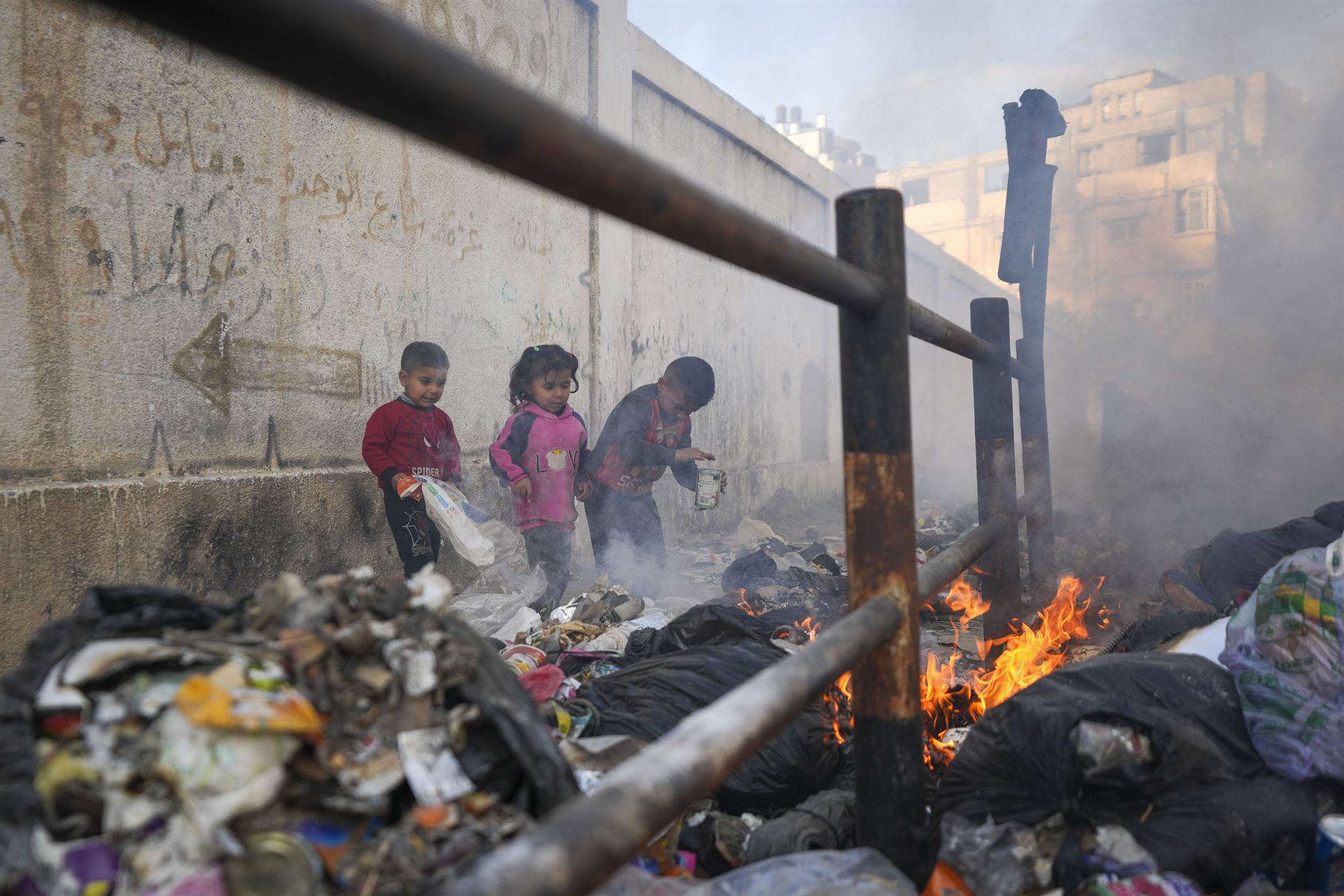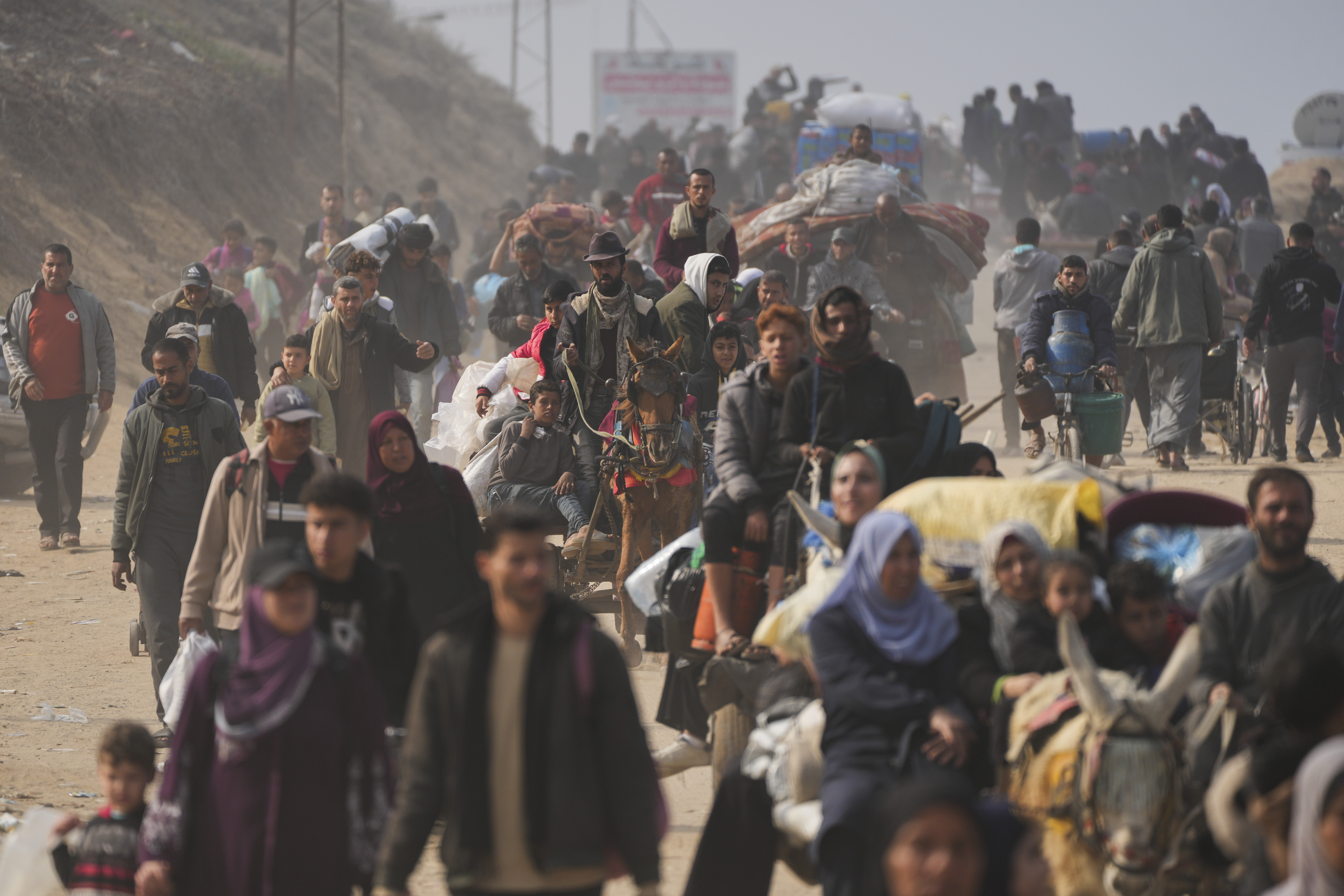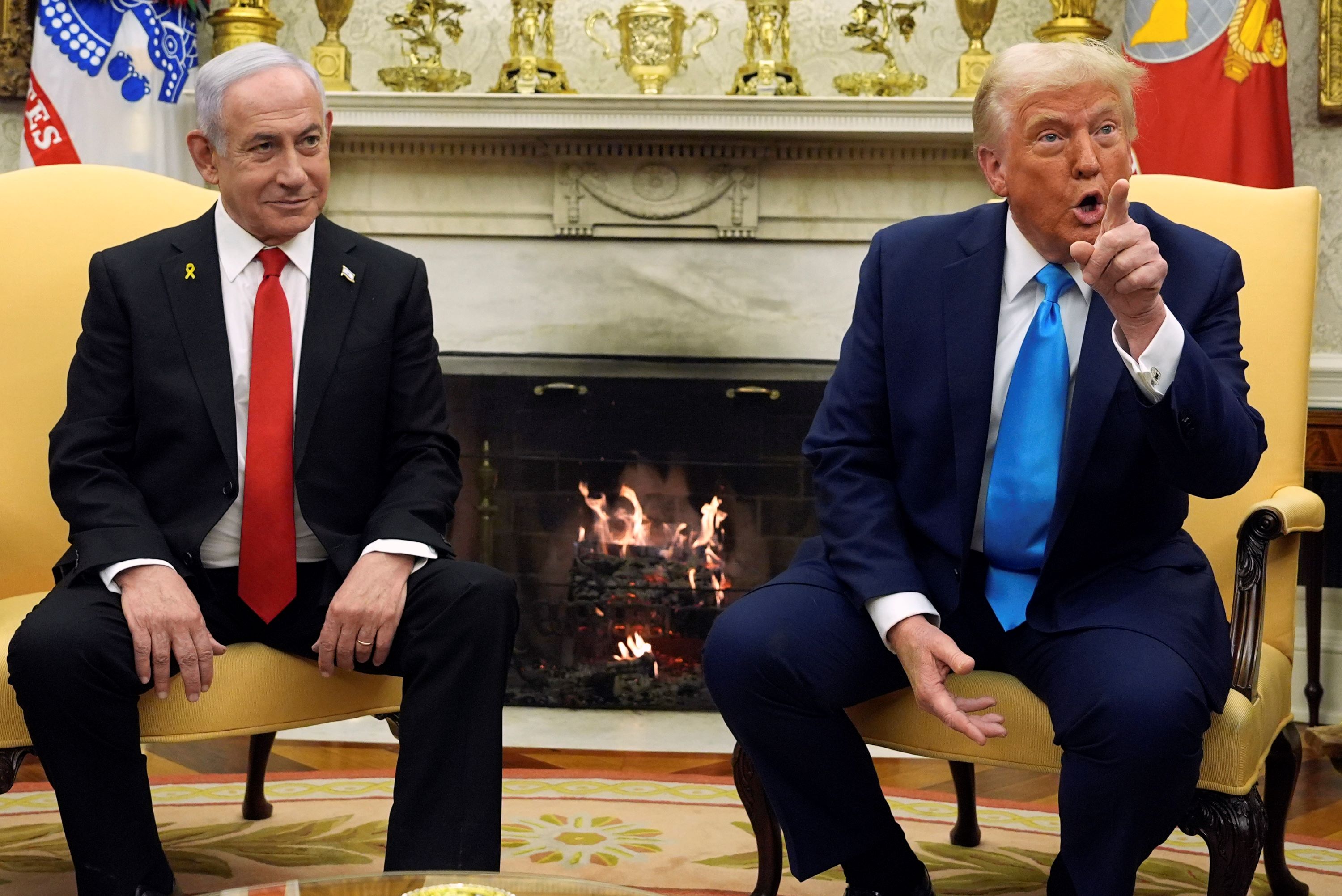
UNITED NATIONS/WASHINGTON - It is vital to stay true to the bedrock of international law and "avoid any form of ethnic cleansing" in Gaza, UN Secretary-General Antonio Guterres warned on Wednesday.
At its essence, the exercise of the inalienable rights of the Palestinian people is about the right of Palestinians to simply live as human beings in their own land, Guterres told a UN committee meeting.
"We have seen the realization of those rights steadily slip farther out of reach. We have seen a chilling, systematic dehumanization and demonization of an entire people," he said in remarks at the 2025 session of the committee on the exercise of the inalienable rights of the Palestinian people.
READ MORE: Trump says he wants US to take over Gaza Strip
"In the search for solutions, we must not make the problem worse," Guterres warned. "It is vital to stay true to the bedrock of international law. It is essential to avoid any form of ethnic cleansing."
Guterres' speech came one day after US President Donald Trump proposed that Palestinians will resettle elsewhere and the United States will take over and gain "long-term ownership position" in the war-torn enclave. However, the UN chief didn't mention Trump or his proposal during his address.
During the meeting, Guterres also called for a full ceasefire in Gaza following the first phase of a truce deal between Israel and Hamas.

"First, we must keep pushing for a permanent ceasefire and the release of all hostages without delay," he said. "We cannot go back to more death and destruction."
Highlighting the importance of the two-state solution, the UN chief said, "a viable, sovereign Palestinian State living side-by-side in peace and security with Israel is the only sustainable solution for Middle East stability".
READ MORE: France rejects Trump's proposal to control Gaza, resettle Palestinians
Guterres also voiced his concern over the escalating situation in the West Bank, including East Jerusalem. "I am gravely concerned by rising violence by Israeli settlers and other violations," he said.
The UN chief stressed the violence must stop, and international law must be respected, and accountability ensured.
Reiterating the UN's full commitment to the inalienable rights of the Palestinian people, Guterres called on the international community to work toward preserving the unity, contiguity, and integrity of the occupied Palestinian territory and the recovery and reconstruction of Gaza.
Trump floated his plan during a joint press conference with Israeli Prime Minister Benjamin Netanyahu on Tuesday, suggesting that the United States could take control of Gaza and relocate Palestinians, which has sparked widespread defiance and condemnation.
ALSO READ: US withdraws from UN Human Rights Council
At Wednesday's noon briefing, when asked if Guterres believes Trump's plan amounted to ethnic cleansing, Stephane Dujarric, spokesperson for the UN secretary-general, responded, "any forced displacement of people is tantamount to ethnic cleansing".
'No military commitment'
Top officials in the Trump administration on Wednesday tried to walk back the president's remarks the previous day that the United States will "take over" the Gaza Strip and gain "long-term ownership position" in the enclave.
"The only thing President Trump has done, very generously, in my view, is offer the United States' willingness to step in, clear the debris, clean the place up from all the destruction that's on the ground, clean it up of all these unexploded munitions," US Secretary of State Marco Rubio, who is on a visit in Guatemala, said at a news conference in Guatemala City alongside Guatemalan President Bernardo Arevalo.

Rubio said, "in the meantime, the people living there, the people who call that home will not be able to live there while you have crews coming in and removing debris, while you have munitions being removed, etc".
ALSO READ: Hamas says 2nd phase of Gaza ceasefire talks underway
He acknowledged that the details of the proposal, which alarmed the world and was opposed by several Arab nations as well as US allies in Europe, "would have to be worked out among multiple partner nations".
"Seriously, it was not meant as a hostile move," Rubio said. "It was meant as a, I think, a very generous move, the offer to rebuild and to be in charge of the rebuilding of a place many parts of which, right now, even if people move back, they would have nowhere to live safely, because there are still unexploded munitions and debris and rubble."

Rubio did not say whether or how Palestinians who would, as Trump suggested, be relocated elsewhere when the reconstruction in Gaza gets underway would ultimately be allowed to return to the region they call home.
White House Press Secretary Karoline Leavitt tried to lower the media's anticipation of a certain US military deployment in Gaza, repeatedly emphasizing to reporters during Wednesday's daily press briefing that "the president has not committed to putting boots on the ground in Gaza".
READ MORE: Palestinian PM announces formation of committee to oversee Gaza affairs
On Trump having not ruled out the option of sending US troops to Gaza, Leavitt said "the president is very good when he's making deals and negotiating, not to rule out anything because he wants to preserve that leverage in negotiations".
Leavitt also clarified to reporters that Trump's idea was for Gazans to be "temporarily relocated out of Gaza" for the rebuilding effort.
That explanation, however, seemed to differ from Trump's own words at Tuesday's news conference.
"I hope that we can do something where (Gazans) wouldn't want to go back - who would want to go back?" Trump said.


